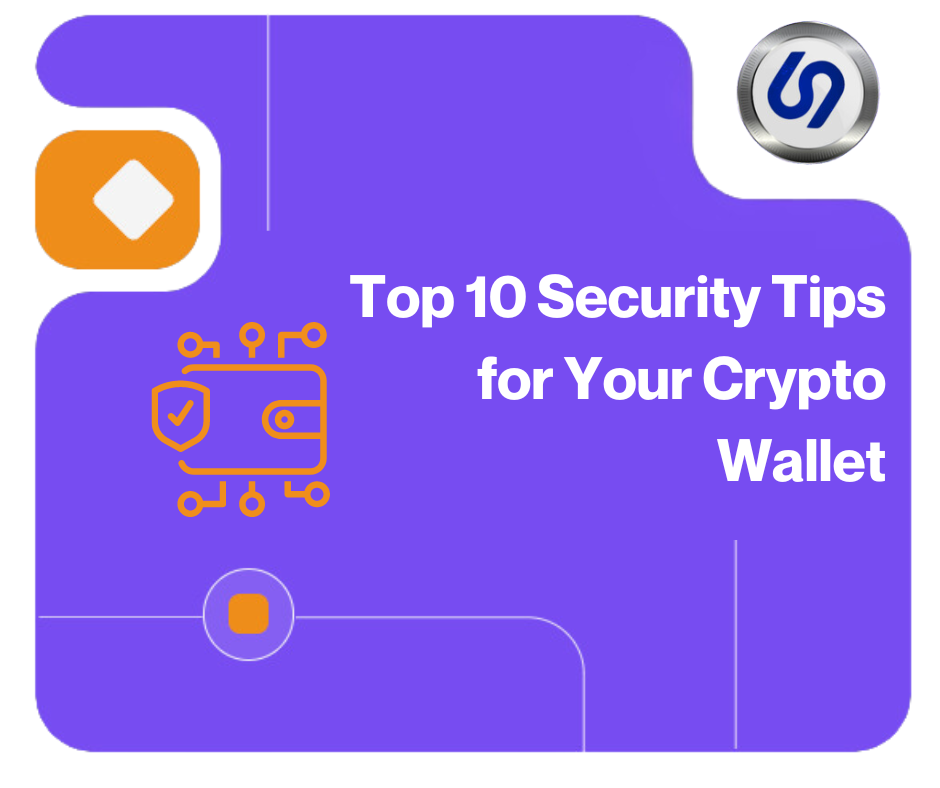
















 Top 10 Security Tips for Your Crypto Wallet
Top 10 Security Tips for Your Crypto Wallet
As cryptocurrencies gain popularity, ensuring the security of your crypto wallet is more important than ever. Your crypto wallet is the gateway to your digital assets, and protecting it from potential threats is crucial. This blog will provide you with the top 10 security tips to safeguard your crypto wallet, ensuring your investments remain safe and secure.
Hardware wallets are physical devices that store your private keys offline. This makes them immune to online hacking attempts. Popular hardware wallets include Ledger Nano S, Ledger Nano X, and Trezor. Using a hardware wallet adds an extra layer of security, especially for long-term storage of significant amounts of cryptocurrency.
Two-Factor Authentication (2FA) adds an extra layer of security by requiring a second form of verification, usually a code sent to your mobile device, in addition to your password. Enabling 2FA on your crypto wallet and associated accounts can significantly reduce the risk of unauthorized access.
Always use strong, unique passwords for your crypto wallet and any related accounts. Avoid using easily guessable information such as birthdays or common words. Consider using a password manager to generate and store complex passwords securely.
Ensure that your wallet software, as well as your computer and mobile device operating systems, are always up-to-date. Updates often include security patches that protect against new vulnerabilities. Regularly check for updates and install them promptly.
Regularly backup your wallet and store the backup in a secure location. For software wallets, this means exporting your private keys or seed phrases and keeping multiple copies in different locations. For hardware wallets, write down your recovery seed and store it securely.
Phishing scams are fraudulent attempts to obtain sensitive information by pretending to be a trustworthy entity. Be cautious of emails, messages, or websites that ask for your private keys or login credentials. Always double-check URLs and avoid clicking on suspicious links.
Avoid using public Wi-Fi networks when accessing your crypto wallet. Public networks are more vulnerable to hacking attempts. Instead, use a secure, private internet connection, preferably one with a Virtual Private Network (VPN) for added security.
Multi-signature wallets require multiple private keys to authorize a transaction. This adds an additional layer of security, as multiple approvals are needed to move your cryptocurrency. Multi-signature wallets are especially useful for shared or business accounts.
Regularly check your wallet and transaction history for any unauthorized or suspicious activity. Early detection of any issues can help you take immediate action to secure your assets. Set up alerts for large or unusual transactions if your wallet supports this feature.
Stay informed about the latest security practices and potential threats in the cryptocurrency space. Follow reputable news sources, join online communities, and participate in forums to keep up-to-date with current trends and developments. Continuous learning is essential for maintaining the security of your crypto wallet.
Protecting your crypto wallet is crucial to ensuring the safety of your digital assets. By following these top 10 security tips, you can significantly reduce the risk of unauthorized access and potential loss of your cryptocurrencies. Use a combination of hardware wallets, strong passwords, 2FA, and other security measures to create a robust defense against threats.
Stay vigilant, stay informed, and prioritize the security of your crypto wallet to enjoy the benefits of digital currencies with peace of mind. As the cryptocurrency landscape continues to evolve, so should your security practices. Regularly review and update your security measures to keep your investments safe.